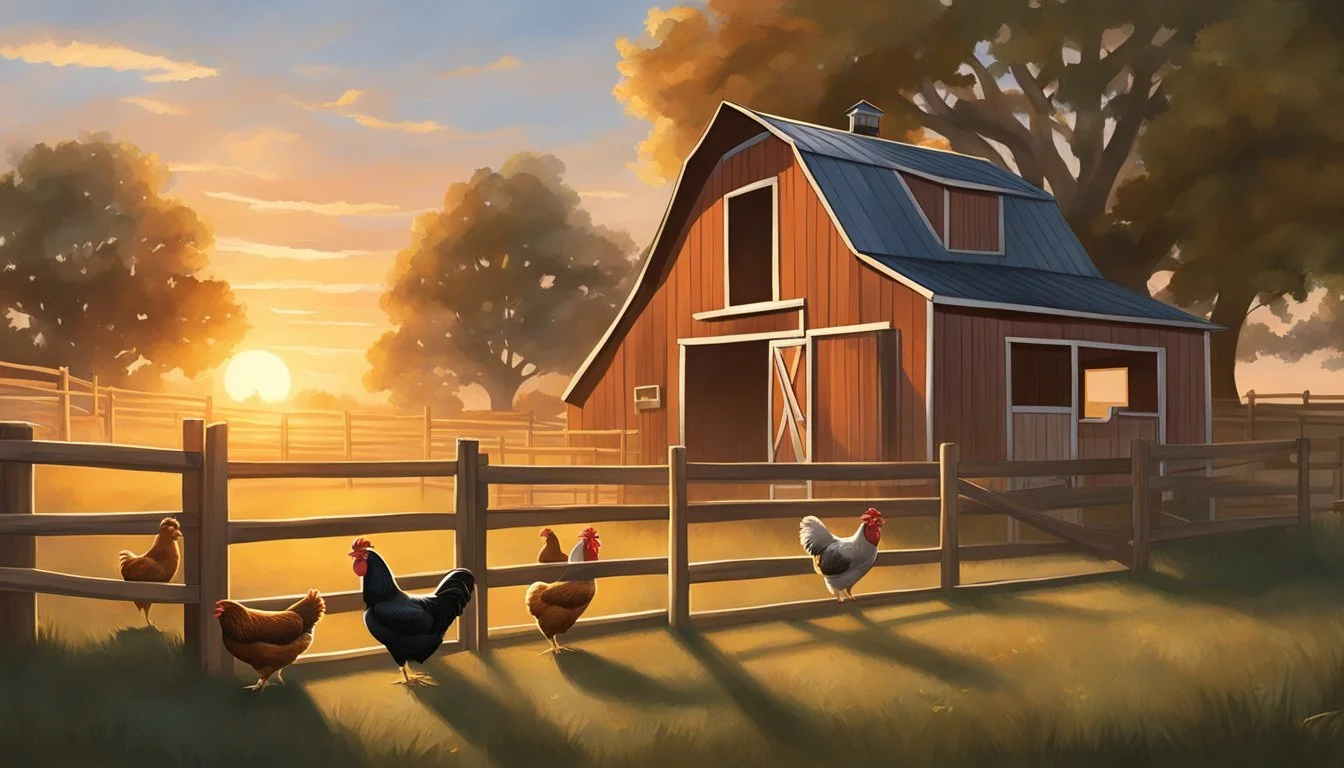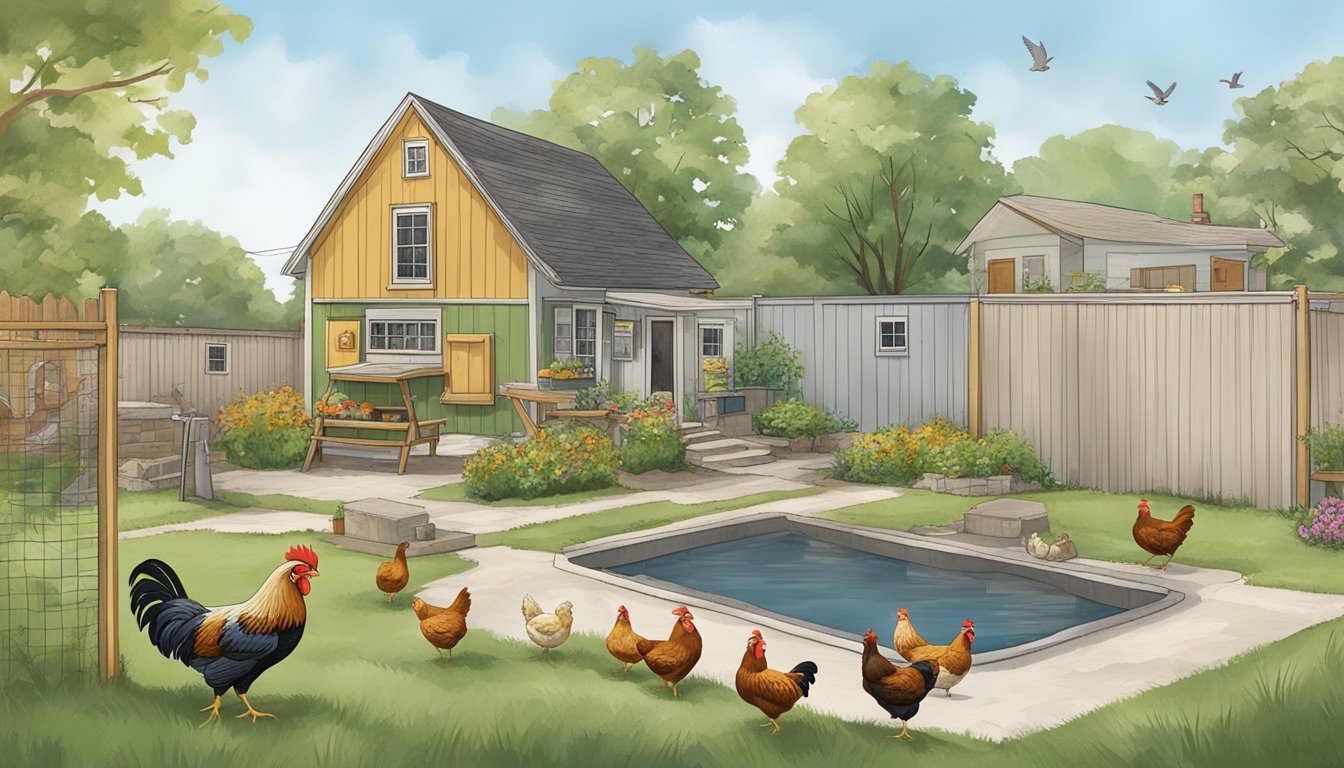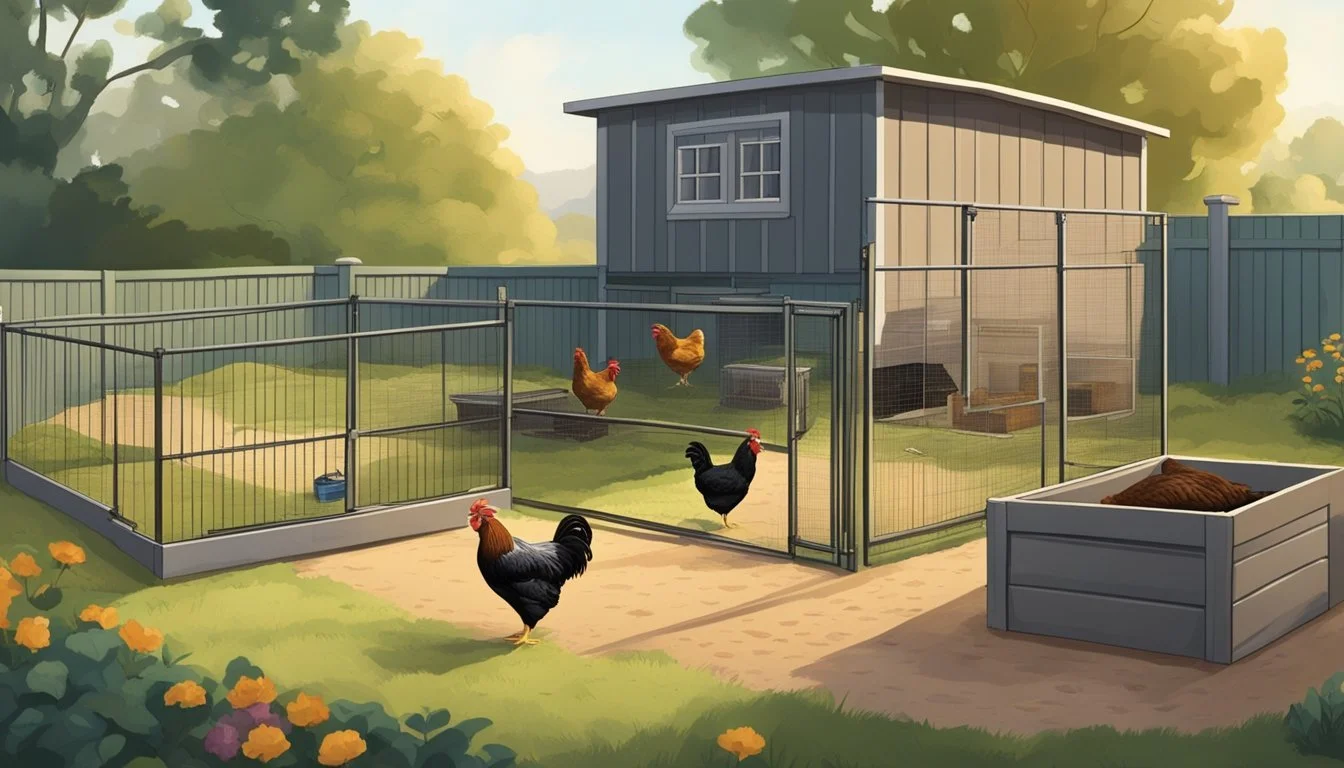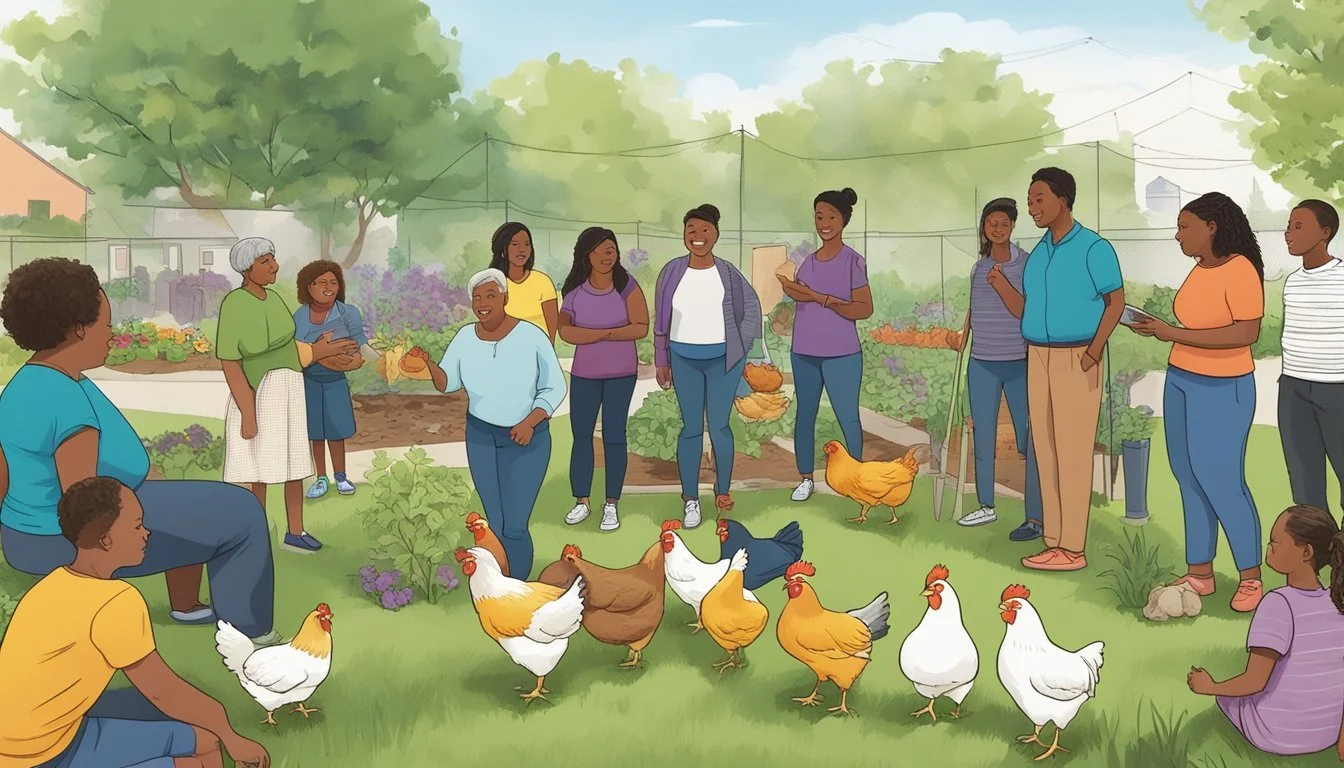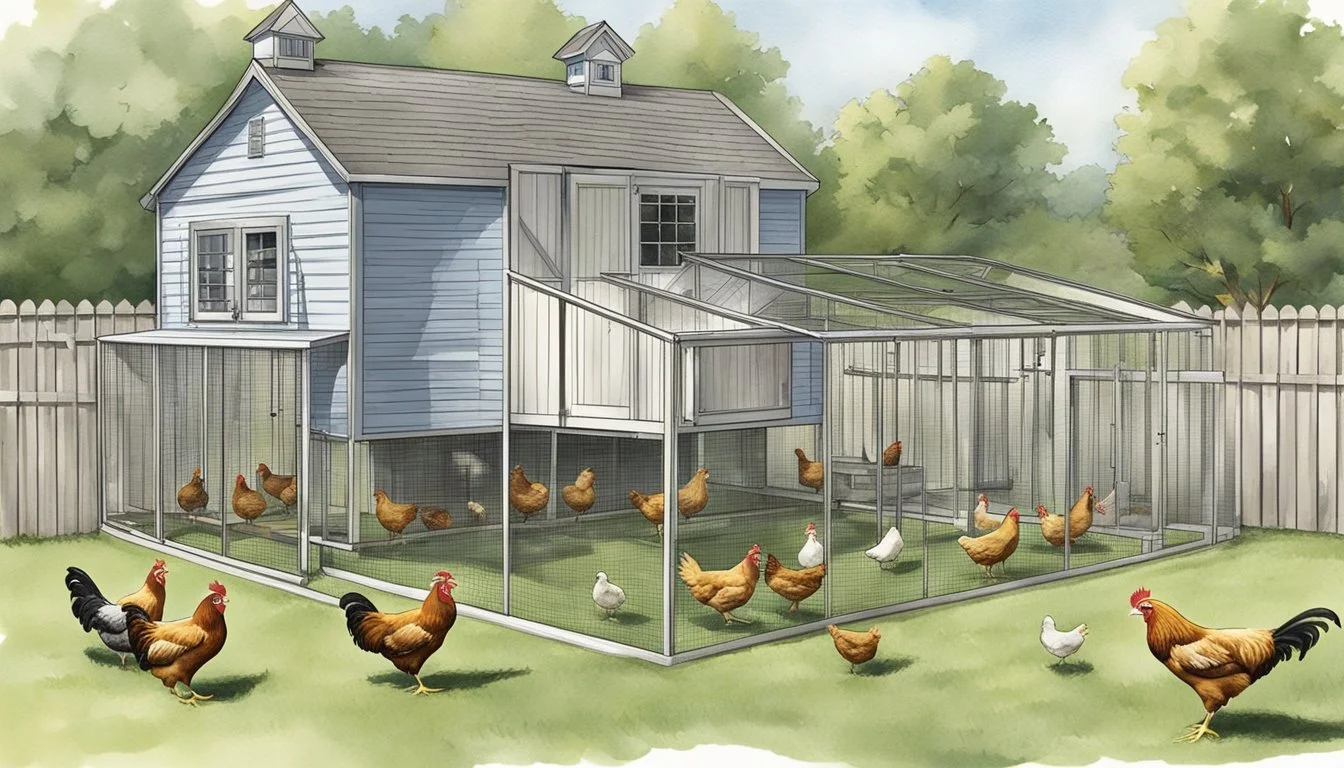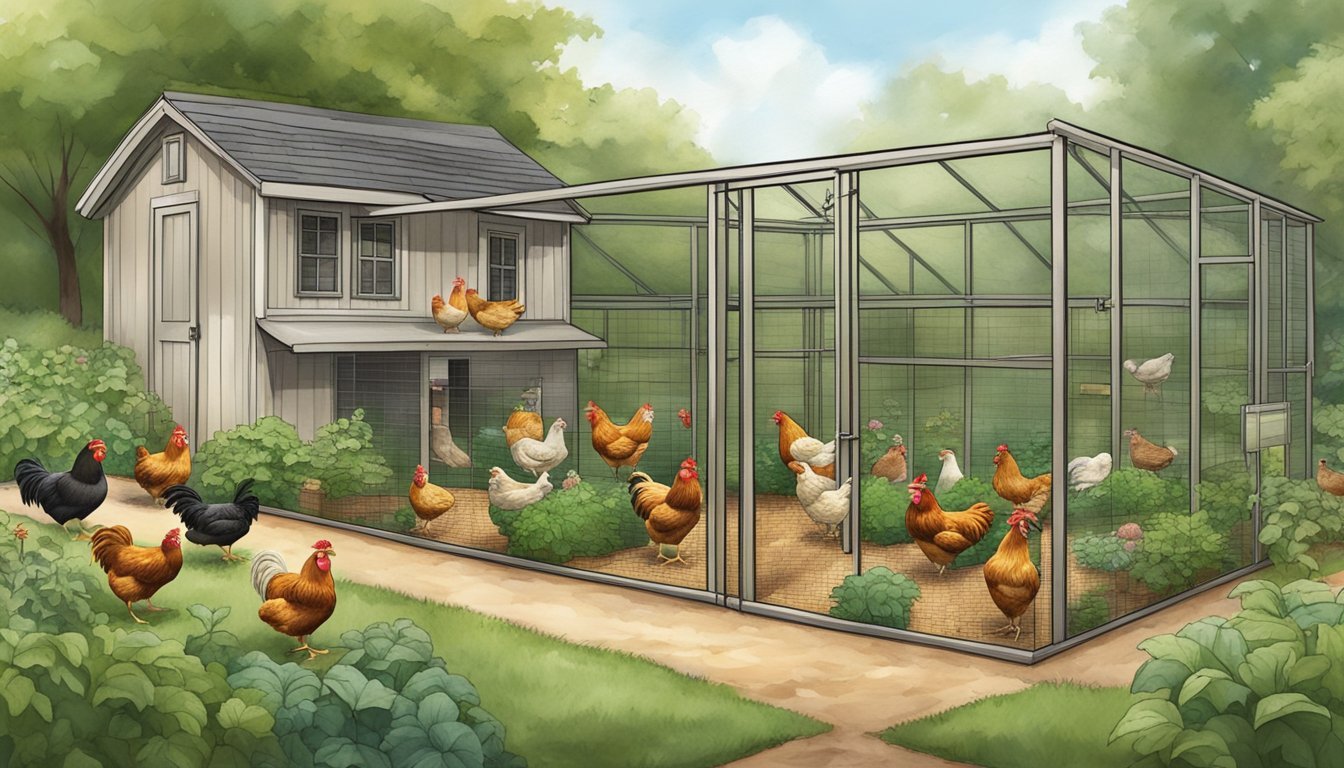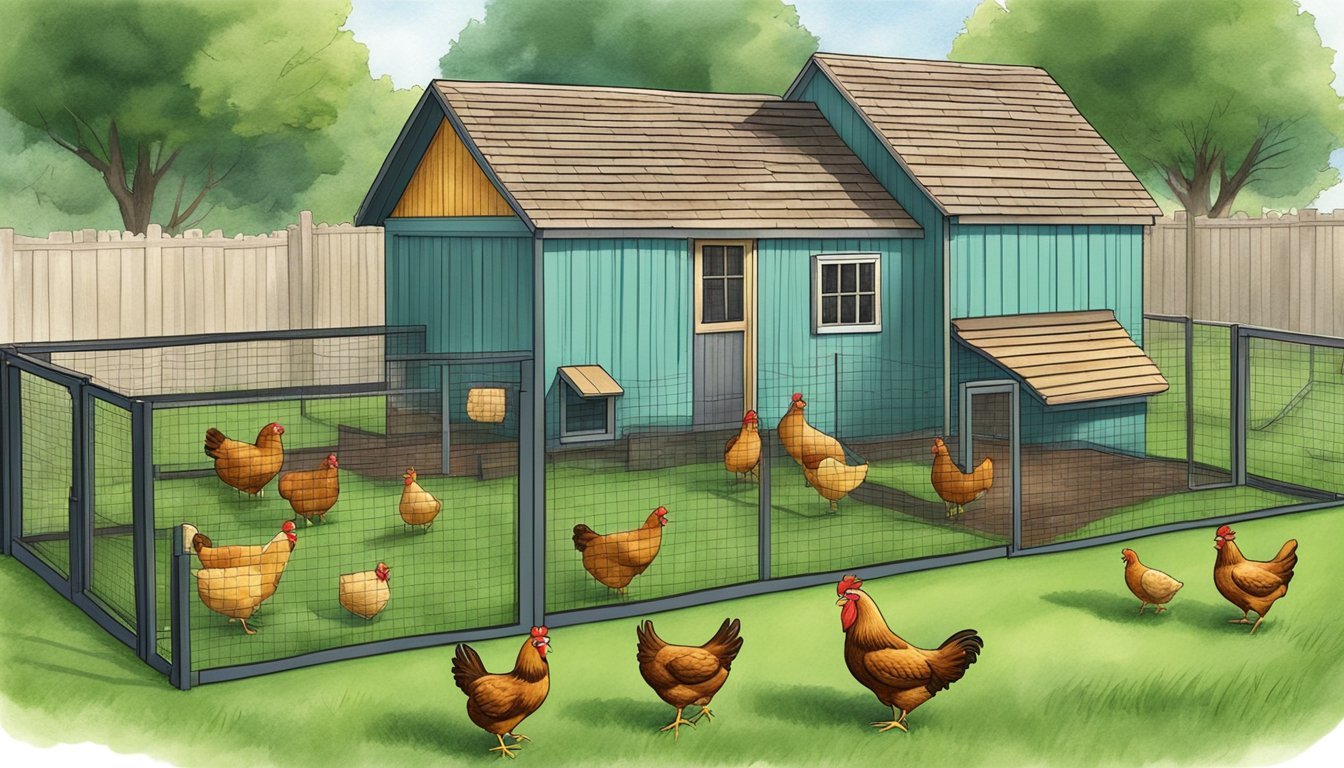Keeping Backyard Chickens in Elgin, IL
Essential Guidelines for Urban Poultry Farming
Keeping backyard chickens has become a popular practice for residents seeking a more sustainable lifestyle and a personal supply of fresh eggs. In Elgin, Illinois, individuals have the opportunity to raise chickens in their own backyards. This practice requires adherence to specific regulations set by the city to ensure that both the chickens are well cared for and the community is not disturbed.
To begin raising backyard chickens in Elgin, residents must obtain a city-issued license. The licensing process involves working with the city's community development staff to ensure that the property meets the minimum requirements for keeping chickens. This process is in place to maintain the animals' welfare and the cleanliness and safety of the neighborhood.
Moreover, the city of Elgin imposes restrictions designed to minimize noise, such as the prohibition of roosters within city limits. Residents may maintain up to four chickens, and these birds must be confined in a coop, pen, or other suitable enclosure at all times. Understanding and complying with these regulations enables residents of Elgin to engage responsibly in backyard chicken keeping.
Understanding Local Ordinances
Elgin's approach to backyard chicken keeping is defined by specific local ordinances, focusing on maintaining harmony between urban agriculture and residential life.
Overview of Elgin Chicken Regulations
The City of Elgin allows residents to keep chickens, subject to regulations to balance urban agriculture interests with neighborhood aesthetics and safety. For instance, chicken coops must be at least 25 feet from any neighboring residence and cannot be visible from the street.
Comparison to Nearby Suburbs
Elgin's regulations are somewhat similar to other suburbs like Evanston or Oak Park, which also implement residential chicken ordinances. However, specifics such as flock size and permitting requirements may vary. Downers Grove and Lombard have their unique sets of rules that residents must follow, reflecting differing city council decisions and community standards across the region.
Permit Application Process
Any resident of Elgin looking to keep chickens must first obtain a permit. The application requires providing details about the property, coop design, and acknowledgement of the number of chickens allowed. The city requires that no structures for keeping chickens be set up before receiving a permit.
Restrictions and Requirements
Flock Limit: Residents can maintain up to four chickens.
Roosters: Keeping of roosters is prohibited to avoid noise disturbances.
Property Size: Regulations mention coop placement, typically necessitating a distance from property lines.
Enclosures must ensure chickens are contained and may include chicken tractors, which are screened mobile pens.
Legal Considerations
Residents are responsible for understanding and adhering to all local laws and regulations. The City of Elgin's municipal code contains specific language outlining these ordinances, and staying informed about any changes is crucial to avoid penalties.
Pilot Program Insights
Elgin has discussed or conducted pilot programs to assess the impact of urban chickens on the community. The outcomes of such programs can lead to changes in ordinances, reflecting the city's adaptation to resident feedback and gathered data.
Handling Violations and Complaints
The local government has a system for handling complaints, such as issues from neighbors about noise or odors. Residents can use the city's website or Facebook page to report concerns, and the city council may address violations through fines or revisions to permits.
Preparing Your Property
When planning to keep backyard chickens in Elgin, IL, preparing your property effectively is crucial. This involves selecting an appropriate location for your coop, ensuring its design is suitable for the chickens' needs, and safeguarding them against predators. Cleanliness is imperative for the health of your flock, and provisions must be made for the harsh winters, as well as consistent access to water and feed.
Selecting the Right Location
The coop should be positioned in a well-drained area of your backyard to avoid water accumulation that could lead to unhealthy living conditions. It's also important to consider sun exposure; chickens benefit from both sunlight and shade.
Designing a Suitable Coop
A coop less than 50 square feet will often suffice for a small flock. Ensure adequate ventilation while preventing drafts. Include roosts and nesting boxes. The pen, ideally smaller than 100 square feet, should allow chickens freedom of movement.
Ensuring Safety from Predators
The coop must be secure to protect chickens from predators such as raccoons and hawks. This can include buried wire fencing or a solid base, covered runs, and secure latches.
Creating Comfortable Living Conditions
Comfort goes beyond space; it includes light sources for the shorter days and possibly a lamp for warmth. Bedding, or litter, is important for comfort and must be maintained regularly.
Maintaining Cleanliness
Litter should be regularly replaced, and waste must be managed properly—composted or bagged and disposed of properly— to prevent odor issues.
Winterizing the Coop
Winter conditions require special preparation. Insulate the coop and consider a heat lamp to ensure comfort. This will help prevent frostbite and keep your chickens healthy during colder months.
Meeting Water and Feed Requirements
Chickens need constant access to water that does not freeze in winter, and feeders should be regularly filled. Position these resources to minimize spillage and maintain a clean environment.
Caring for Your Chickens
Proper care ensures the health and productivity of your backyard chickens in Elgin, IL. From daily nutrition to managing their life cycles, understanding these key practices is essential for any responsible chicken keeper.
Daily Feeding and Health Care
Chickens require a balanced diet to maintain their health and support egg production. Provide a consistent supply of commercially prepared chicken feed that is specific to the age and species of your poultry. It's critical to ensure they have constant access to fresh water which needs to be replaced daily to prevent contamination. Check the flock regularly for signs of illness or distress, such as changes in eating habits or lethargy.
Nutrition: Layer feed, grains, vegetables
Water: Clean, unfrozen, accessible
Health Monitoring: Daily observation, isolate sick birds
Understanding Egg-Laying Cycles
Hens have natural egg-laying cycles influenced by factors like daylight and diet. Be aware that egg production peaks in the first year and typically decreases thereafter. Supplying additional light during the shorter days of winter can help maintain production. Collect eggs daily to encourage more laying and prevent brooding or egg-eating behaviors.
Peak Production: First year
Egg Collection: Daily to maintain cycle
Managing Hens and Roosters
In Elgin, roosters are not permitted within city limits due to noise ordinances. When focusing on hens, it's important to provide ample space for them to roost, lay, and forage. Each hen should have access to a nesting box. Limiting the flock to a manageable size ensures each bird receives adequate care and minimizes the risk of over-crowding and stress.
Roosters: Not allowed
Space per Hen: Minimum requirements must be met
Molting and Health Issues
Molting is a natural process where chickens lose old feathers and grow new ones, usually once a year. During this time, hens may temporarily stop laying eggs and require extra protein in their diets. Be vigilant for any sign of parasites or skin issues that can arise during the molting period. Regular health checks and maintaining a clean coop are key to managing these issues.
Molting Period: Annual, affects egg-laying
Health Checks: Regular, especially during molting
Community Engagement and Education
The City of Elgin’s backyard chicken initiative brings together residents, encouraging sustainable practices and fostering community education. Here's how Elgin’s citizens are collaborating and learning through the program.
Building Relationships with Neighbors
Residents keeping backyard chickens are advised to engage positively with their neighbors. Transparent communication about the care and management of chickens, along with sharing the benefits such as fresh eggs, can build strong community bonds. It's beneficial for residents to discuss:
Noise management, to reassure neighbors that roosters, which are more likely to cause disturbances, are not allowed in the city.
Cleanliness practices, to maintain a healthy and odor-free environment.
Participating in Local Online Forums
Online platforms, such as a dedicated Facebook page, provide a virtual meeting space for Elgin's chicken enthusiasts. These forums are a place to:
Share experiences and tips on best practices for raising backyard chickens.
Discuss common challenges and find community-based solutions.
Promoting Sustainability and Nature
Backyard chickens contribute to sustainability by providing a local source of fresh eggs and reducing food waste through their diet of kitchen scraps. They also encourage a closer connection with nature. Residents can highlight these points by showing how backyard chickens:
Reduce carbon footprint by eliminating the transport of eggs from farm to table.
Offer natural pest control in gardens, contributing to a balanced ecosystem.
Creating Educational Opportunities
The backyard chicken program can be an educational tool within the City of Elgin. Residents can create educational opportunities to inform and inspire others about the benefits of urban agriculture. Initiatives can include:
Hosting coop tours to educate the community on best practices of chicken keeping.
Organizing workshops on the basics of chicken care and the importance of local, sustainable food sources.
Navigating Slaughtering Regulations
Elgin, Illinois, has specific policies regarding the slaughtering of backyard chickens, which residents must follow to remain compliant with both city and state regulations.
State and City Policies on Slaughtering
City of Elgin: Slaughtering chickens within the city limits is expressly prohibited. Residents must adhere to this ordinance to avoid penalties and ensure community health and safety.
State Regulations: While the state of Illinois allows the keeping of backyard chickens in many areas, it typically defers to municipalities like Elgin to set forth their own policies on slaughtering.
Alternatives to Home Slaughtering
Processing Facilities: For those seeking to slaughter chickens, using licensed processing facilities ensures adherence to health regulations.
Rehoming: Residents may consider rehoming older chickens rather than slaughtering.
Ethical Considerations
When exploring alternatives to home slaughtering, residents should consider the welfare of their chickens. It's essential to handle all aspects of backyard chicken keeping with a focus on ethical treatment and community standards.
Exploring Local Resources and Support
Elgin, Illinois, offers a supportive environment for residents interested in keeping backyard chickens, with various programs and community groups in place.
City-Sponsored Initiatives
The City of Elgin has embraced urban agriculture through its initiative, which allowed a one-year pilot program culminating in 2015, and then the permanent adoption of regulations allowing backyard chickens. Currently, residents can keep up to four chickens, but roosters are prohibited to minimize noise disturbances. The success of the pilot program is recognized, and the city has expanded access to more homes, facilitating a growing community of responsible chicken keeping. However, residents must obtain a license and a permit for the construction of chicken coops and pens.
Finding Local Chicken-Keeping Groups
Community support is integral to Elgin's backyard chicken keepers. Local groups provide resources, shared experiences, and advice to both novices and experienced poultry enthusiasts. A Facebook page and other social media groups are common platforms where Elgin residents connect regarding health, care, and maintenance of backyard chickens. This peer-to-peer network serves as a valuable touchpoint for sharing insights and fostering a sense of community among local chicken keepers.
Accessing Veterinary Services
Maintaining the health of backyard chickens requires access to knowledgeable veterinary care. Elgin residents have the benefit of finding local veterinarians with the expertise needed for poultry health. These services ensure that chickens receive proper medical attention for routine health checks and any issues that may arise. Such accessible veterinary support is crucial for residents to manage the well-being of their backyard flocks efficiently.
Considering Home and Property Impact
When residents in Elgin, IL contemplate keeping backyard chickens, they must assess the influence on property values, daily life, the chickens' living conditions, and neighborhood harmony.
Evaluating Real Estate Value
Keeping backyard chickens can have a variable impact on property value. Some homebuyers view a well-maintained chicken coop as a sustainable living perk, while others may see it as a deterrent. Residents must assess their community's stance on backyard chickens and consult real estate experts in Elgin to understand potential effects on their property value.
Impact on Lifestyle and Daily Routines
Chickens require daily care which can affect residents' lifestyles. From providing feed and water to cleaning the coop, the commitment is substantial. Prospective chicken keepers should consider how tending to chickens will fit into their schedules and if their current daily routines can accommodate these new responsibilities.
Free-Range Versus Confined Spaces
Confining chickens to a coop or allowing them to free range impacts both the chickens and the property. Free-range chickens often require more space and can lead to increased interaction with neighbors, while confined chickens need less space but may need more engagement from the residents to ensure their well-being.
Coops must be situated 25 feet from the owner’s house and 6 feet from property lines.
Visible free-range chickens might lead to complaints from neighbors.
Mitigating Noise and Disturbances
Roosters are not permitted in Elgin, reducing noise disturbances significantly. Residents should still consider the noise from hens, which can affect neighbors. Strategic coop placement and sound-mitigation practices can help maintain good relations within the community.
Implement noise-reducing design features in chicken coops.
Regularly engage with neighbors to address any concerns or complaints proactively.
Conclusion
Elgin, Illinois, demonstrates a commitment to sustainable urban agriculture by allowing residents to keep backyard chickens. The rules are structured to maintain community standards and animal welfare. Here are the key points to remember when considering raising chickens in the comfort of your own backyard in Elgin:
Residents are permitted to have up to four chickens.
Roosters are not allowed, minimizing noise issues.
A permit is required before one can keep chickens or construct a coop and pen.
Requirement Detail Coop Must be an accessory structure smaller than 50 square feet to shelter chickens from weather and predators. Pen An enclosure less than 100 square feet that allows movement and prevents escape.
Following these regulations can contribute positively to local food production and offer a step toward a more sustainable lifestyle. It provides households with fresh eggs and an educational experience about where their food comes from.
Prospective chicken keepers in Elgin should verify current regulations with the local government to ensure compliance and to become aware of any updates to the city’s stance on backyard poultry. This final verification ensures the health and safety of both the chickens and the community.

